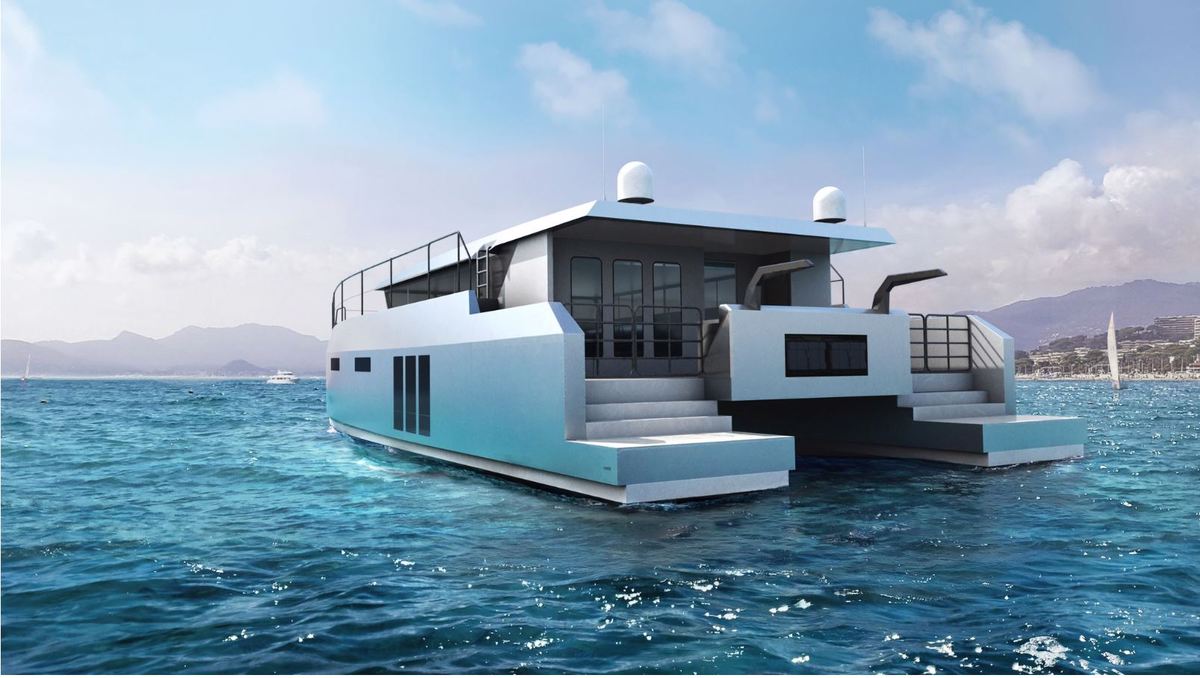The Week in Alternative Fuels
Here are some key developments in alternative bunker fuels from the past week.
 PHOTO: Concept of methanol-powered leisure craft based on Archipelago Catamaran. Chartwell Marine
PHOTO: Concept of methanol-powered leisure craft based on Archipelago Catamaran. Chartwell Marine
As the European Parliament voted in favour of including shipping in the EU ETS this week, the sector's inclusion is just a formality away. The EU ETS will be the first regulated international emissions system to hold European shipping companies responsible for CO2 emissions. In addition, methane and nitrous oxide emissions are included in the current ETS mandate.
Meanwhile, the Group of Seven (G7) alliance called upon the IMO to adopt tougher measures to combat emissions. This week, the alliance pledged net-zero shipping emissions by 2050 and promised to present reduction targets for 2030 and 2040 at the 80th Marine Environment Protection Committee (MEPC) meeting scheduled for July. The coalition also urged mid-term measures by 2025 to ensure the shipping industry meets its climate targets.
It is likely that after EU regulates shipping under the EU ETS, G7 nations will follow the "non-enumerated member" model and hold shipping sector accountable for its carbon emissions. The industry, however, is actively working to reduce carbon emissions, as well as to comply with global climate regulations if they are applicable.
As part of its efforts to reduce its carbon footprint, the shipping industry is switching to cleaner fuels such as green methanol. And Danish shipping major A.P. Moller – Maersk (Maersk) is among the pioneers of using green methanol on ships. This week, Maersk launched a new generation of methanol-powered containerships, which will operate between Rotterdam and the Bay of Bothnia.
A UK-based shipping duo also chose methanol as its fuel of choice for its low-emission leisure vessel. Leisure boat builder Archipelago Expedition Yachts (Archipelago) and ship designer Chartwell Marine will build an ocean-going Catamaran leisure ship that will be powered by a combination of methanol fuel cells and methanol engine. Chartwell Marine endorsed bio-methanol as a low- or zero-emission alternative fuel that is energy-efficient and "safe for the local environment even when spilled."
It is also possible to reduce carbon emissions from vessels by installing carbon capture systems - an option which UK-based Lomar Shipping will explore this summer. It will install Seabound's carbon capture device on its ships to capture carbon dioxide (CO2) from fuel exhaust. Based on Seabound's estimates, the unit can capture up to 95% of vessel's CO2 emissions.
By Konica Bhatt
Here is our selection of top five alternative fuels stories from this week:
European Parliament approves inclusion of shipping in EU ETS
G7 nations pledge 2050 target for net-zero shipping emissions
Maersk launches its first methanol-fuelled containership
UK-based shipping duo to build methanol-powered leisure yacht
UK's Lomar Shipping to test Seabound’s carbon capture tech on its vessels






